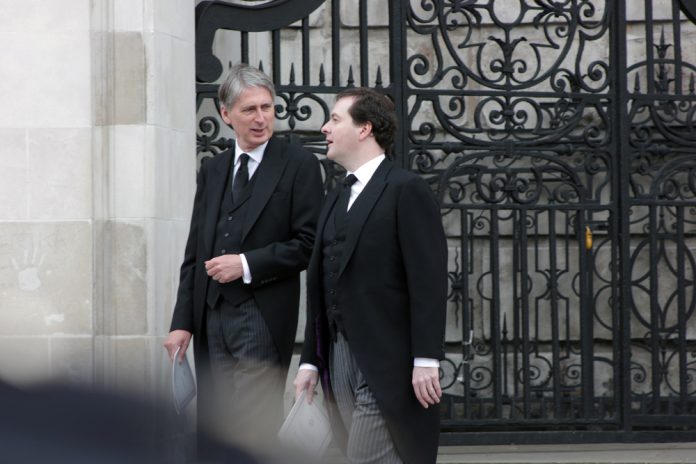
Chancellor Philip Hammond will make his first Autumn Statement on Wednesday, outlining the government’s economic plans and setting the tone for Theresa May’s term in power.
It is not expected to be a revolutionary speech, largely focusing on outlining minimal public spending and the cost of Brexit. Following the European Referendum, it is clear that Hammond will have his work cut out to rebalance budgets; official figures released today are set to show public debt hitting around 90 per cent of national income.
What is expected?
Hammond is expected to follow Osbourne’s lead and take a hardline stance on the economy, perhaps meaning further austerity. He has previously called public debt “eye-wateringly large”, adding that, “We have to make sure the economy is watertight.”
The updated OBR, published on Wednesday, is likely to give further insight as to how Hammond will play it. It is likely to show the economy will be about 2 per cent smaller by 2019, giving something to structure his budget around; instead of the March forecast of 2.2 per cent growth in 2017, factoring in weakness in the wake of the European Referendum, growth is likely to be closer to 1.2 per cent.
Theresa May has previously drawn attention to ‘JAMs’ – or Just About Managing families – and the budget is expected to provide further assistance to those in this position.
Reportedly, policies under discussion include reducing the burden of childcare and a freeze in fuel duty, as well as potentially decreasing the cost of Air Passenger Duty.
The Chancellor had previously pledged to make minor changes to the Universal Credit system brought in by his predecessors in 2013, easing the burden on those who now receive that instead of the six means-tested benefits it replaced.
Hammond is also expected to make is very clear that Britain remains “open for business” in the wake of the referendum, and is likely to outline how Britain will stay competitive.
The corporation tax rate will already be cut from 20 to 17 per cent by 2020, with Prime Minister Theresa May announcing £2 billion a year of extra R&D and science spending earlier this week.
Policies already announced include:
- A pledge to improve British infrastructure, including spending more than £1 billion on road improvements, and £2 billion per year on research and development. £27 million will be set aside to improve the road between Oxford and Cambridge via Milton Keynes, as recommended by the National Infrastructure Commission.
- A minimum wage rise, from its current level of £7.20 to £7.50 in April.
- A pledge to build more housing, with £1.4 billion set aside to build 40,000 homes.
- A ban on letting agency fees.
